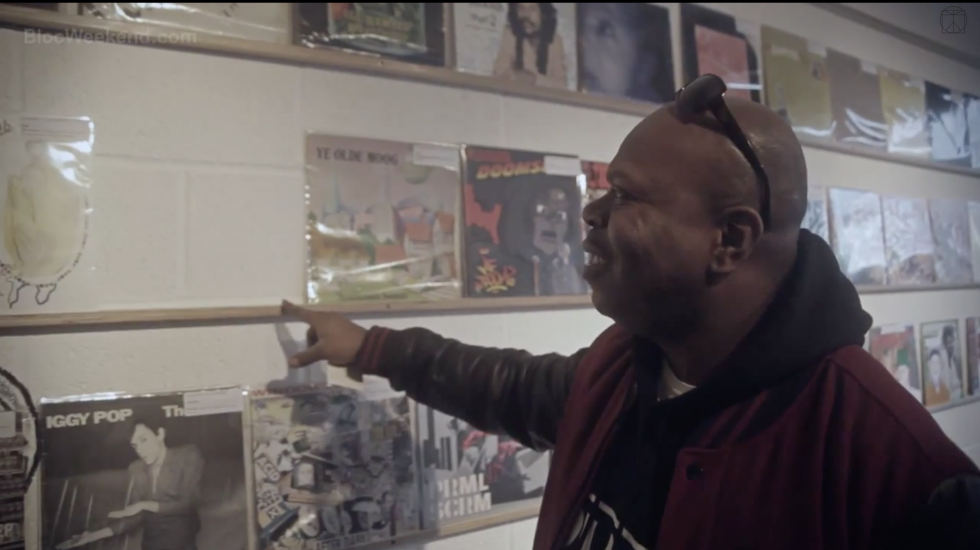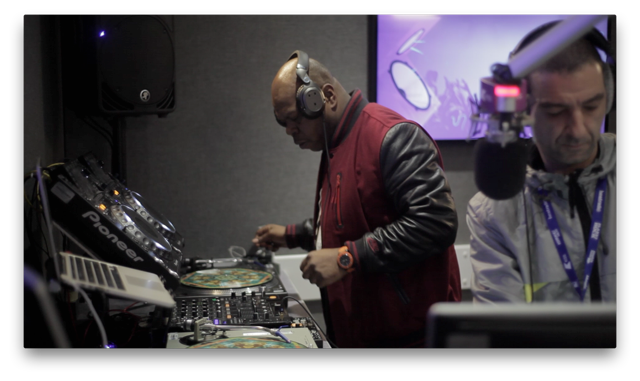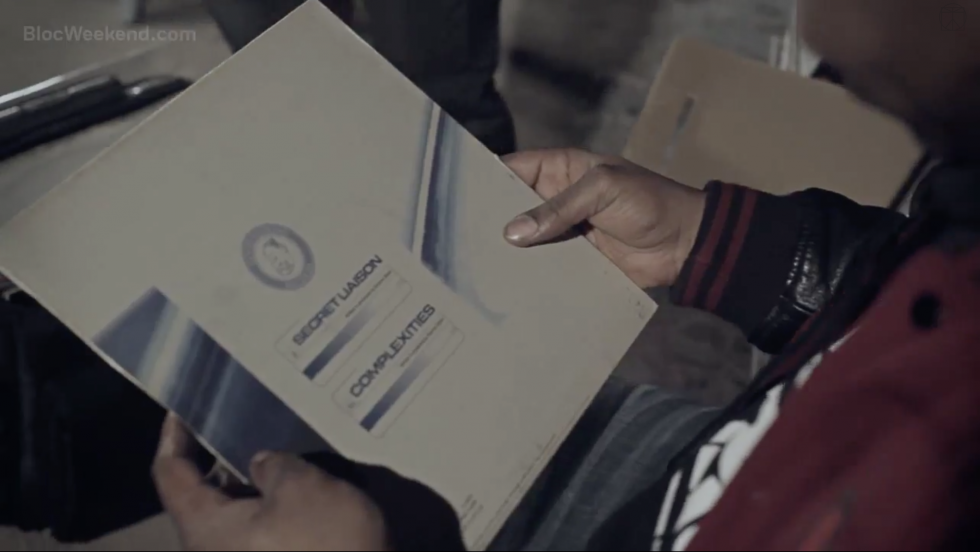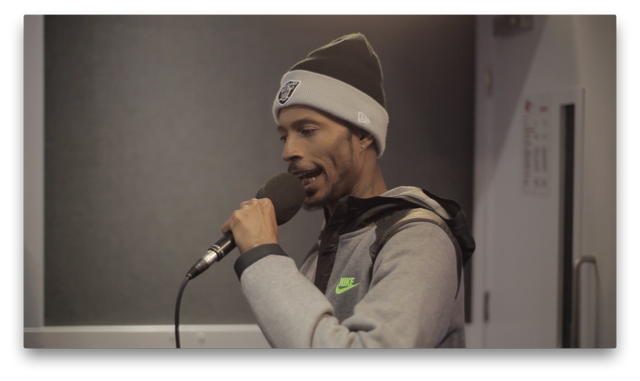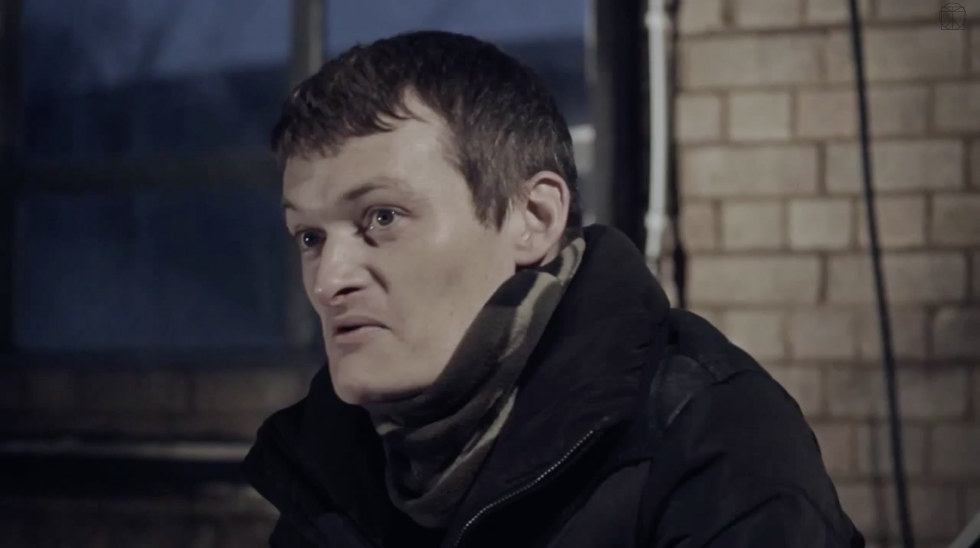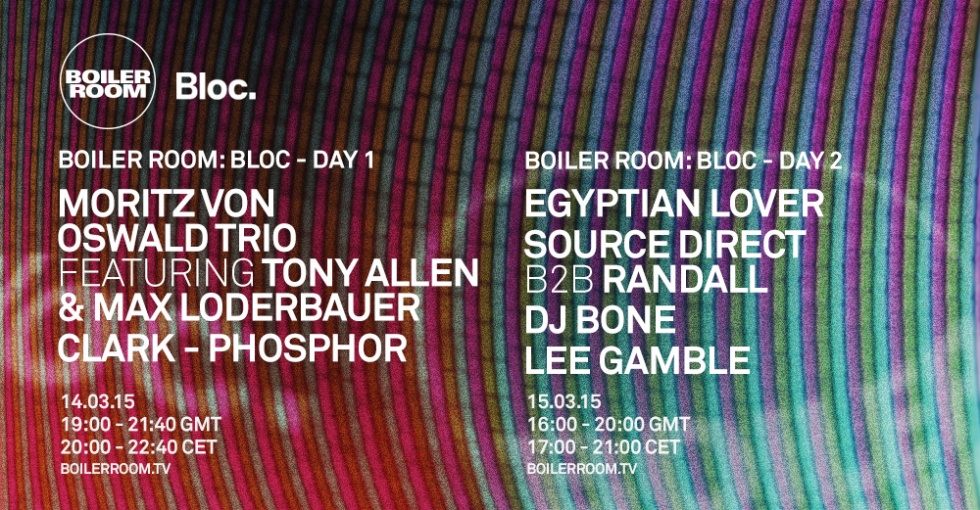 In underground culture, the cycles of influence move on macro and micro scales, with sounds becoming more and less influential over time – but there are certain mainstays, which once they’ve been through the initial rise and fall, eventually become appreciated as eternal dancefloor vérités. The 303 gurgle of acid is one, and the controlled chaos of jungle is unquestionably another.
In underground culture, the cycles of influence move on macro and micro scales, with sounds becoming more and less influential over time – but there are certain mainstays, which once they’ve been through the initial rise and fall, eventually become appreciated as eternal dancefloor vérités. The 303 gurgle of acid is one, and the controlled chaos of jungle is unquestionably another.
The Bloc organisation has always created events where rave’s best flavours – jungle included – can be appreciated as rave rather than as trainspotting opportunities or nostalagia-fests. And that’s why when Boiler Room were putting together our broadcasts for this year’s glorious return to Butlins Minehead, as well as showing the most exploratory music, we wanted to focus on the music with the most energy, and leapt at the chance to have a B2B session from two of the original don gorgon jungle / drum’n’bass producers.
I spoke to both Randall and Source Direct for this video which Bloc together. Below, you can read the full interviews, which dig deep into the magic moments of jungle’s glory days – and, crucially, look at why it still works in the heat of the dancefloor today.
—
JOE MUGGS: Let’s start with the big one. What does jungle mean to you?
RANDALL: All jungle means to me, is basically a way of life. It’s the way I’m living from day dot, from when I first got experience with this type of music, i.e., acid house, back in ’88, ’89, to where it’s evolved into what people call jungle, drum and bass music. It’s just a part of me; it’s what I’m about. It’s like my DNA. It’s where I first really experienced music, and it’s where I met a lot of good people — a lot of talented people. I got everything that makes my life through this music scene, basically.
How did you start going raving in the first place?
Basically I started raving when it was about ’86, ’87, and friends of ours were going to illegal house parties, and then it branched out into illegal venues. I used to follow a few friends, and a few of my friends’ friends had events going on, i.e., Hypnosis, a place called Dungeons in Lea Bridge Road in East London, not too far away from the old Olympic Park over there [gestures out the window]. Basically, hanging around with them, I got influenced by people like Rhythm Doctor, Mr. C, Rob Atkinson. These guys used to be playing a mix-up of the music that I wanted to listen to, based on the hip hop and electro I’d be listening to before that. And then I went to an event called Notting Hill Carnival, and I experienced acid house for the first time, and I was sold. I was sold.
And what about the reggae soundsystem influence?
Well, at the time, because a lot of our friends had their own sound systems and were playing in clubs, we’d always go out and listen to people like Heatwave and Beat Freak and Trevor Nelson’s Mad Hatters. So we’d always go around East London, not too many times over South, but mainly over East London, checking out sound systems. So it was a natural progression from that of us setting up our own little sound system, and getting boxes, and doing events like friends’ parties and whatnot, so yeah – it’s just been like a progression from that into concentrating on being a DJ.
At what point did you start to realize that from listening to hip hop and then house, that the breakbeats and the sub-bass were kind of pushing off into their own thing?
Well, I think it was — when acid house was playing, there was a lot of guys from America starting to use breaks in their tunes, the Todd Terrys and all them, and I could relate to their breaks from listening to hip hop and whatnot. So I would pinpoint these type of tracks and then as years progressed, guys in England started to get their own equipment and started to make up their own sound. And so that’s where Production House guys like DMS, Acen, and all the other guys that had started to make their own sound, were incorporating breaks that I could relate to.
And Reinforced Records was one of the champions that I used to respect and I used to follow, like, Dego and Marc. These guys were like scientists in their rooms where they — what’s the word I’m looking for? They were experimenting with breaks and samplers and… transforming? Not transforming. What’s the word? Time-stretching. That’s it; time-stretching breaks and things, making them into something completely new. And that’s where we got the imprint, and as years progressed, British youth started to do their own thing. And that’s where jungle evolved, basically — the terminology of jungle and drum and bass.
And what really grabbed you about the atmosphere as things progressed through hardcore and jungle? Some people would say that there was moodiness and darkness…
Darkness, yeah. But it was positive and more than that. I think it was the coming together of people, and the narcotics in the scene that brought people together — there’s no denying. If it wasn’t for that, there’s a lot of people that wouldn’t be mixing with each other. You know what I mean? So that kind of helped, and that progressed into our music, and that is part and parcel, really. But, say that question again?
What was the atmosphere like?
Oh, the atmosphere. The atmosphere was like — it was second to none. It was like, certain tunes, you would just see euphoria on a breakdown. But back then, we didn’t really even have MCs. It was mainly like a guy that would just come in and say a few words at the beginning of your set and halfway through your set and at the end of your set. So between that, it was your job to get that crowd going. But the reason that was being played, it was fresh out of the box, and people just loved it. To this very day now, you can go to a festival and you can check out a house room, you can check out a grime room or whatever, but you’ll never see the atmosphere that you’re going to see in a drum and bass room. And I know that because I’ve been there many a time to see it. Even when I’ve just gone to have a look and have a nose, I can just see that. Our sound is second to none. As you know, Environmental Health is always trying to turn our music down in our tent, because the dB levels are just unreal, innit?
When it got to ’94, and the sound started to become jungle – the time of “Original Nuttah” and the rest – there was this thing of the Jungle Committee.
Ohhhh, the Jungle Committee. [laughs] Oh, the Jungle Committee was just a meeting where people just weren’t happy with the situation at the time. There’s no need to go into it, but people weren’t happy with — you know what I mean? Because we are a movement of guys and artists that have done our own thing and a situation occurred, and the guys just weren’t having it. They just wanted to have a meeting, and it was just a meeting of minds, if you can name it, from Congo Natty, Rebel MC, Kenny Ken, Goldie, myself, Groove[rider], DJ Rap — we all met up and had a chat and a smoke, and to be honest, nothing was nailed down at the end of that meeting anyways. Things just carried on, and we’re here now, still.
It wasn’t a meeting of the Illuminati, then?
Nah, it wasn’t a meeting of the Illuminati. I think you have to pay a fee to get into the Illuminati, and I couldn’t afford that fee [laughs].
As jungle transformed, there was soulful drum and bass, hardstep…
There were categories, which there is with all music. There’s always a fork in the – well, there’s always a tree, a base, and then people form off and try different ideas, and different subgenres are always made. You know, it is what it is. Loads of guys are just artists, as they say. They ain’t pigeonholing themselves in one thing, and that’s how I am when I play my music. I don’t pigeonhole my music into one thing. I’m pretty happy to say that I could play anywhere. I just adapt to the crowd reaction.
And as other things came in and out of fashion, did you ever have dips?
Oh yeah, we all have dips and doubts. It’s just like, if we were making a tune, you’re going to have doubts on what it sounds like until you give it to someone else, and they either give you an honest opinion or they just tell you it’s good even though it’s bad. But I’ve always had dips. I came off the scene for a little while, ’cause I wasn’t really feeling it at the time, and lo and behold, it only takes a moment of inspiration to bring us back in. Which… well, I’m kind of blessed, because not a lot of guys can do that. But I think because I was there from day dot and I came through with a lot of solid guys that knew what I was capable of, I was open-arms welcomed back into this little thing, which I’m thankful for.
Is that support network still there, then, from that time period?
Yeah, yeah. The support network’s still there. There’s a lot of guys that I still communicate with that actually ain’t in my scene; they’re more into house, deep house. They’re making music for majors and whatnot. So I always keep connected to them, and they send me music that ain’t out yet, and I send them stuff that they haven’t heard, but they like the production and stuff. They might not play it, but music’s music, man. I can listen to anything.
Obviously, generations that followed have taken drum and bass as a big influence. Grime kids, Wiley, Dizzee, Flowdan, whoever, started in drum and bass.
Yeah, they were. They were. Someone like D Double was in it when I was – obviously more recently I knew D Double and Footsie’s tunes with Newham Generals but I’d never actually met him, and it was only like two years ago, when I was at Outlook Festival, when I actually met him for the first time, and we had a good chat. And you’d be surprised that a lot of guys that actually passed through our record shop in Forest Gate where we were just playing music and were just there for the love of it and selling records – a lot of people would pass through to listen, i.e., like Plan B, you’re talking Rage from Chase & Status, you’re talking all the guys from the drum and bass fraternity, promoters, they all passed through our little spot. So it’s kind of humbling to know that we actually were their template.
What was your record shop called?
De Underground Records in Forest Gate, it was a little shack [laughs]. It was Cool Hand Flex, Uncle 22, Mikey Dread, Fats, Wacko, Marley Marl — everyone that passed through — Hatman, Seany Dee, everybody from the ends, even my wife.
You must play alongside dubstep guys and people like that at big things like Outlook.
Yeah, yeah, yeah. That’s where you can meet everybody and it’s a spot to actually check out other artists and what they have going on. So it’s nice when we can come together as a community and just have a good time.
Do you go and check out some of the stuff outside your scene?
Oh yeah, yeah. If I’m there long enough. Channel One was playing in one space with Marcus Visionary, and Marvelous Cain, and then on the flip, we were on the main stage — me, Goldie, GQ, listening to DJ Premier. And then from that, we’ve gone and checked out other guys. I’ve checked out Marcus Intalex under his name of Trevino, playing deep house. If you get an opportunity to actually check out guys that you wouldn’t really — in passing, in clubs, that’s the place to check it out.
Same as with Bloc, obviously. Have you played Bloc before?
No. This will be the first Bloc festival in Minehead. It’ll be the first time I’m going to be playing for these guys. I’ve read a lot of things about them.
Have you played in a holiday camp before?
I’ve played in a holiday camp – I played in Skegness years back, with Living Dream. They first had a party just over the way there in – I think it was Lee Valley cycling track, with about ten thousand, and a party after that they’d done in Skegness. And I remember it distinctly because I played just before Carl Cox, and actually hearing him play Acen, “Close Your Eyes” – just shows you how far back we go. That’s a long time. So yeah, I’ve played at a few holiday camps in my time.
And do you get booked for jungle revival sets?
Yeah, yeah. Well, they really say it’s for old-school sets, but I’ve been trying to tell them, “Can we just call it a history set? Because you’re kind of pigeonholing me with this old-school thing but call it history, I can take you from any year and show you how it fits together.” To be honest, I can’t remember what years the records were [laughs], because I’m getting fully MP3’ed up in Serato, so it hasn’t really got the years, so I try and put a set together where people can remember certain tunes. And because I get so much good new music, I need to play it. So I try and incorporate it into a set, but I’m not too upfront where we lose the crowd on what they really want to hear.
You can never re-create a certain atmosphere from a particular time, though.
Nah, never. You never could.
If you really want to do your homework, you can really check out what was getting done pre-’92, pre-’90.
Do you see kids who are fully schooled on old sets you’ve done and records you’ve made?
Yeah. You’d be surprised. Some kids do their homework. Some kids haven’t got a clue, because that’s just the way it is. But some guys, they really tap in. They get a tune and they want to know the real history of this tune. Like obviously, a lot of these artists have been around for years, and they’ve been making tunes from day dot. So they go back to the beginning, and some of them do do their homework, which… well, it’s there on the net. If you really want to do your homework, you can really check out what was getting done pre-’92, pre-’90. You can find out the original template of some guys that have been there from day dot.
And when you play those old tunes, do you feel like you have to provide some context, or do you think people just get old tunes instantly? Do you think they still work in the sound system context?
Well, obviously back then, production-wise, people’s arrangement on tunes were a bit loose, like, they weren’t quantizing as tight as they used to. But it was just like, the flavour at the time. You could just put tunes into a pot, and just samples and breaks, and come out with something that would work in a club, but not necessarily work as a selling product to sell someone — because it’s not as clean as you want it to be. But it was just the way it was back then. It was just the rawness of it; the raw, undiluted sound. Nowadays, everyone can be more technical and it’s more digital-orientated, but I know a lot of guys going back to analog, because they just like the warm sound, or back to old samplers because they like to keep it simple.
If you had to pick one tune from the early jungle years, like not the hardcore and rave, but the jungle jungle, what tune would you draw for?
It’d have to be Ed Rush’s “Bludclot Artattack”. They used a sample from Flash Gordon at the end. You know the ring in it, when they take the ring and you hear that noise – “ZWINNNG”? He took that and he took a sample from this acid house tune, I think it was 808 State “Let Yourself Go”. But I think they just took the “Let it go.” So if you want to hear the proper, proper jungle that used to influence me, it’s got to be Ed Rush & Optical. No wait it was just Ed Rush, wasn’t it? But we could go on days for tunes that could bring a tear to your eye, know what I mean? Days!
—
JOE MUGGS: What does jungle mean to you?
SOURCE DIRECT: What does jungle, drum and bass mean to me? Basically all about everyone getting together – young, old, rich, poor – just all getting down, getting into a place just to have a good old party, basically. It’s all about the drums, the bass, the rhythm, the funk. It’s about giving people that wouldn’t have opportunities, I suppose, to make music — the opportunity to throw some beats together at home, try out some beats, try out some rhythms, get them to a DJ, get them to some underground pirate radio stations through to underground clubs. It started many years ago, back in the illegal days, obviously, before the big mainstream clubs picked up the scene.
But for me, back in the day, it was getting in to hip-hop and tracing the early samples where they got their breaks, where they got their samples. And that was the American sort of sound; then obviously we had the underground sort of jungle scene, which evolved into drum and bass, which as far as I’m concerned is the same type of thing. It’s all about the rhythm. It’s all about the funk. It’s got to have breakbeats; it’s got to have bass lines. As long as it’s got that rhythm to make people move and dance, generally, that’s basically what it’s all about.
When did you first experience raving as such?
Boy. I first got into it before I should have got into it, I suppose. I mean, I was in school – I was a bit of the odd kid out at school, I suppose, listening to Public Enemy, KRS-One, Kool G Rap and Polo, all the early hip-hop boys, and doing mixtapes, and then traveling up to Luton to Soul Sense, and buying vinyl and white labels. It was just basically getting into mixing at home and then trying to find – just going out to the early raves that I could do. Camden Palace was one, Dreamscape up in Milton Keynes, which then led on to AWOL at the Paradise Club.
I mean, to be fair, Randall has always been my biggest influence as a DJ, and the way he would roll the beats was totally the one for me. Then as a producer, Goldie came along on the scene, made “Terminator” with the Rufige Cru, and it sort of blew my mind, and it was like, “right, I want to make music like this.” It was just a whole new cutting-edge, creative, technology-involved music – which, being an untrained musician, gave me the opportunity to make music.
And so, that’s what it was all about: pushing the boundaries, making music, giving it to a DJ, going out to some early little clubs. It was called… what was it called? Speed at the Mars Bar. Or was it Mars at the Speed Bar? I always get it mixed up. It was near the Astoria off Soho Square. And a guy started a club there, and Doc Scott, LTJ Bukem, Kemistry & Storm – rest in peace, Kemi – and Fabio were the residents. And it was basically the bar staff and one or two others. There was Photek, myself, and a couple of other producers down there, that was it.
But within six months, basically, the place was packed, and within a year, there was a few more of us going out around Soho Square and it was two in, two out. And it was, I suppose, what people called the birth of the drum and bass scene, if you want to call it that, you know? It’s all about the drums, the bass, whether it be a nice, funky flavour or whether it be a harsher, darker sort of style. You can incorporate all the emotions, you know? And then from there, Metalheadz was born at Blue Note, Hoxton Square.
And it just went on from there, basically, all around the country, and I couldn’t name them all, to be honest with you. Do you know what I mean? It was just going out, basically going out all over the weekend, then you’d sort of rest Monday, Tuesday, you’d go out on a Wednesday for the midweek blues, like go down to Mars. And then you’re out again Thursday, Friday, Saturday, Sunday. And it was just like going to church. For us, going to Blue Note on a Sunday, that was like church, man. You know, just go there, rave hard, make music, hear the tunes, go back, work in the studio, produce some more stuff, next week go down and try to outdo each other as producers and try to make better stuff, you know? That was just a crazy little scene that was bubbling at the time, you know?
As things moved on, as new things came in – garage, dubstep and whatever – did you spot the influence of what you guys had been making on the generations of music?
I’d say, as an artist, you lead a very lonesome life, to be honest with you. Because half the time you’re locked away in the studio on your own, and you’re just working to make music, to please yourself. And if you get those hairs on the back of your neck standing up and you’re feeling it in your heart and soul, if you’re hitting the mark, your intuition says, “There must be other people that are going to like this.” But I didn’t really pay too much attention to the different sort of styles and rhythms, whether it was in garage, 2-step, dubstep, techstep, this-step, whatever-step you want to call it.
If it touches someone sitting in their room in the middle of Ohio, or someone in Japan, someone up in Birmingham, it doesn’t matter.
There were so many different factions, and it was like, you’d go to one club and you’d hear one style of beat rhythm, and it was classed as that thing, and you’d hear it all night. Whereas when I started, you could hear tracks that would be, you could hear a house beat going oontz-oontz all night, you could hear a breakbeat, you could hear someone singing over a track, you could hear an MC spitting lyrics over a track. And it was that mish-mash of everything, which pleased everyone, and it was that whole environment that fired me up to begin with.
So when the scene fractured, to me it became very watered-down, to be honest with you. And it’s only been recently, I’d say, that there’s been a new generation that’s come up that’s identified myself and a lot of tracks that, back in the day, were quality tracks that they’re now playing again out and about, that are influencing these new kids that are making some new good tunes. And so, it’s kind of fired me up again, inspired me again. There is a scene out there. There is people that like what I’m making. It’s all going off again.
What’s been your favourite unlikely booking? You’ve been booked to play at some non-traditional drum and bass clubs.
Yeah, sure. Christ, that’s a funny one to think of. The most unlikely place… I played in Estonia about a year ago. That was quite bizarre. It was right on the borders of Russia, and obviously, it was quite an old place in Estonia. People knew all the old tracks out there. It was a massive load of fans. Basically a proper rave. About twelve Russian guys had driven about twelve hours over the border to come over and hear drum and bass, just to hear what they would call proper drum and bass, you know?
That was quite an abstract place. So I do things like that, all the way through to playing for Blackest Ever Black, which is a big techno-influenced label, and hearing my stuff played amongst the techno guys, and hearing how it’s influenced those people as well as the drum and bass thing. So I’m quite happy for it to span all genres. If it touches someone sitting in their room in the middle of Ohio, or someone in Japan, someone up in Birmingham, it doesn’t matter. Whoever it’s pleasing, great.
And in all your gigging have you found anywhere that you feel recaptures the dance-floor energy of the old days?
Yeah. I mean, the Paradise Club for me, that was the essence of drum and bass during the mid-nineties. That was like the crème de la crème of music-making, breaking new ground with drum and bass. And I suppose the Blue Note was what captured that, just as a producer and a music lover. But then to play at Fire, the Metalheadz’ twentieth birthday last year, that was something that was quite special, I must say. That was a good night.
So the crowd were reacting with as much energy as in the nineties?
Oh, yeah. Yeah. Fire last year, at the Metalheadz’ twentieth birthday, people were giving it large. Place was packed, having it. And honestly, I dropped the old LFO track at the end of my set, I played “The Crane” to start with, and people were going for it right throughout, whether it be old, new, hard, light, they just wanted it all. Loved it. That was a great night.
Do you feel like you might collaborate with younger artists who are influenced by you?
There’s quite a lot of people that have asked to do work with me, and to be fair, I’d like to say, yeah, I’d love to work with a lot of these people. Ultimately, it’s time, and being in the right place at the right time. It’s not the easiest place to commit to going into a studio for a week’s work as such. So yeah, I do want to work with a number of people. I don’t want to say any names, but there’s a few, some of my peers that I’d love to work with. But it’s just locking it down, basically.
And in the meantime, I’m working on new stuff. I’m sitting on half a dozen tracks that haven’t been released at the moment and no one’s heard. I’ve just been rebuilding my studio this past year. And so I’m just getting back on it, and just working on my own stuff for the time being. So once that’s started to get back out there, then I’ll start doing more collaborations, a few remixes that are in the pipeline, some stuff with Randall. Who knows what’s going to go on?
And are you looking forward to the holiday camp vibe at Bloc, then?
I know the festival vibes, yeah, and the festival setup. I must say, it’s quite hardcore after a few days of it. I don’t know how long Bloc’s on for, but I’m pretty hardcore, so I can go for a few days. I don’t worry about that. But I’ve played at the Atonal Festival in Berlin last year, and I think now it’s over three days or something, but I played the last set on the last night, and the place there was packed, and they just went for it. So if it’s anything like that – which I believe, I’ve been told, it is – then the Bloc weekend should smash it. Definitely.
